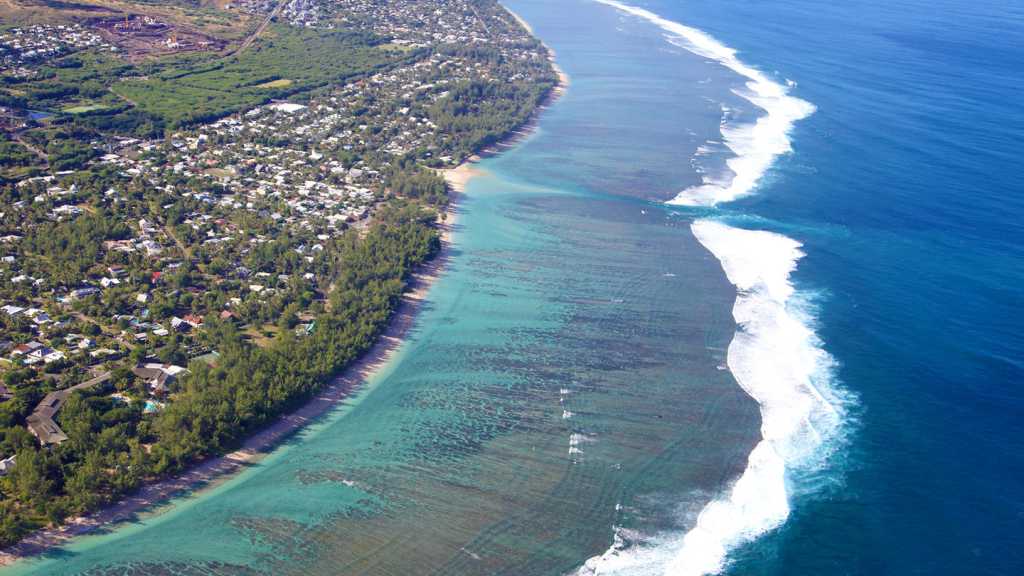Saint-Paul is the 1st commune of Reunion by its surface and the 2nd city of Reunion in terms of number of inhabitants.
The commune includes the area of beaches on the west side to extend to the Piton Maïdo and even to the Cirque de Mafate (Mafate being located on the communes of Possession and Saint-Paul).
Saint-Paul, the first historically speaking capital of Reunion, has the advantage of being a pleasant city steeped in history. It is bordered by a long beach of black sand, but we prefer to go down a few kilometers below to swim ...
Some points of interest nearby:
- Markets, especially the covered market but especially the fairground market, one of the largest on the island, on the seafront of St. Paul
- As Saint-Paul was the first capital of Reunion, besides being pleasant, the city has a historical interest including its 18th century houses, its marine cemetery, the cave of the first French, ...
- Side nature to see the fabulous tower of the Rocks or the Etang de Saint-Paul.
Essential step of a trip to Reunion, the "Côte sous le Vent" - coast under the wind- is protected from the trade winds. Its softness which favored the human settlement, concentrates around Saint-Paul the essential of the seaside tourism. Water sports and swimming are preferred in the lagoons that stretches from Boucan-Canot to Trois-Bassins. Invested since the beginning of the colonization, this part of the island preserves landscapes of flamboyant savannahs pierced by sugar cane fields and dominated by the mountain massifs braving the horizon.
Reunion, she has everything of a big!
In the Indian Ocean, between the vast Madagascar and Mauritius, the volcanic island of Reunion emerged from the bottom of the ocean, there are three million years. This piece of France 10,000 km from the "Métrople" is heated in the sun of the southern hemisphere can not be compared to the other islands of the Indian ocean: villages lost between narrow ridges, lunar landscapes or dizzying waterfalls, Reunion will delight as much the followers of the idleness as the sportsmen and in particular the hikers. In this breathtaking natural space, we also discover an original culture at the crossroads of three continents: Asia, Europe and Africa.
When to go?
Reunion is characterized by a humid tropical climate tempered by the oceanic influence of the trade winds blowing from east to west. The climate of Réunion is characterized by its great variability, particularly due to the imposing relief of the island, which is at the origin of numerous microclimates.
2 issues must be considered:
- Rains: on the west coast, it rarely rains, while in the east, it rains very often!
- Cyclonic period usually from December to March. Anyway, January is not recommended: it is the school holidays period.
So…
- “Cooler” and dry season is from May to November
- The rest of the year is summer which means rainy and hot season. Might be difficult for hiking.
- Divers and surfers are more lucky as sea temperature is nice and warm whole year long…
Formalities
- For French or European Union citizens: a valid identity card or passport.
- For nationals of foreign countries outside the European Union: a valid passport, a visa where applicable (e.g. South Africa) and a return ticket or a continuation of travel.
Precautions should be taken, as well as for departures to all tropical destinations:
- Use of anti-mosquito cream or spray.
- For passengers from endemic countries: vaccination against yellow fever and cholera.
- There is no malaria in Reunion.
Currency
Being a French department, the Currency is obviously the Euro. You will not need to change your money when you arrive, but if you have to, you can change your currency at the airport, in the city or in the big banks. Some hotels of the island accept foreign currencies.
Most of credit cards are usable in Reunion, you can withdraw money at the ATM’s, which are also called “gabiers”, and are quite numerous in the city centres.
Attention, for the metropolis cheques, certain stores, hotels or even certain service stations do not accept them anymore. This is usually indicated, but do inquire before.
